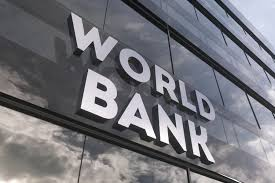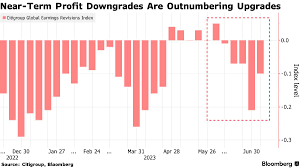World Bank Downgrades Global Growth Forecast to 2.3% Amidst Intensifying Trade Wars and Policy Uncertainty
Editor
Jun 16, 2025
min read
5 views

The World Bank has sharply downgraded its global economic growth forecast for 2025 to a mere 2.3%, a significant reduction from its earlier projections and the slowest pace since 2008 outside of outright global recessions. The grim outlook, detailed in the latest Global Economic Prospects report released on June 10, 2025, primarily attributes this deceleration to intensifying trade wars and persistent policy uncertainty, which are exerting immense strain on global supply chains and discouraging investment.
The report highlights a stark reality: growth forecasts have been cut for nearly 70% of all economies worldwide, spanning across all regions and income groups. This widespread revision underscores the pervasive impact of current global economic headwinds. World Bank chief economist Indermit Gill warned that the global economy has missed its chance for a 'soft landing,' a scenario where inflation would be tamed without triggering a severe downturn. Instead, he noted, 'The world economy today is once more running into turbulence. Without a swift course correction, the harm to living standards could be deep.'
A major contributing factor is the aggressive trade policies, particularly the imposition of tariffs by major economies. While the report refrains from explicitly naming the United States, it strongly implies that President Donald Trump's 'erratic and aggressive trade policies,' including 10% taxes on imports from various countries, are central to the current predicament. These levies drive up costs domestically and provoke retaliatory measures from other nations, creating a vicious cycle of protectionism.
The United States economy, the world's largest, is now projected to grow at 1.4% in 2025, half the rate of 2024 and significantly lower than the 2.3% forecast in January. China, the second-largest economy, is expected to see its growth slow from 5% in 2024 to 4.5% this year and 4% next, hampered by tariffs, a struggling real estate market, and an aging workforce.
Europe also faces a challenging environment, with the 20 Eurozone countries collectively projected to grow just 0.7% this year, a slight dip from 0.9% in 2024. European exports are expected to be hurt by tariffs, and the unpredictable nature of trade policy announcements is creating an atmosphere of uncertainty that discourages business investment.
India, however, remains a relative bright spot. Despite a slight downgrade from its earlier forecast, it is still expected to be the world's fastest-growing major economy, expanding at a 6.3% clip this year. This resilience is attributed to strong domestic demand, though external trade pressures are likely to temper its overall growth.
The report's analysis suggests that resolving current trade disputes and halving tariffs could boost global growth by an average of 0.2 percentage points over 2025 and 2026. M. Ayhan Kose, the World Bank's Deputy Chief Economist, emphasized that developing economies, which reaped the benefits of trade integration, are now at the forefront of this global trade conflict. He urged policymakers to 'redouble efforts on integration with new partners, advance pro-growth reforms, and shore up fiscal resilience to weather the storm.'
Beyond trade, the report also touches upon other risks, including geopolitical rivalries, competition for resources, cyberattacks, and climate events, all of which place severe strains on globally exposed businesses and contribute to the deteriorating economic outlook. The challenge for nations, particularly developing ones, will be to mobilize domestic revenues, prioritize fiscal spending for vulnerable populations, and strengthen fiscal frameworks to navigate this period of heightened uncertainty.
Editor
League Manager Editorial Team





Leave a Comment